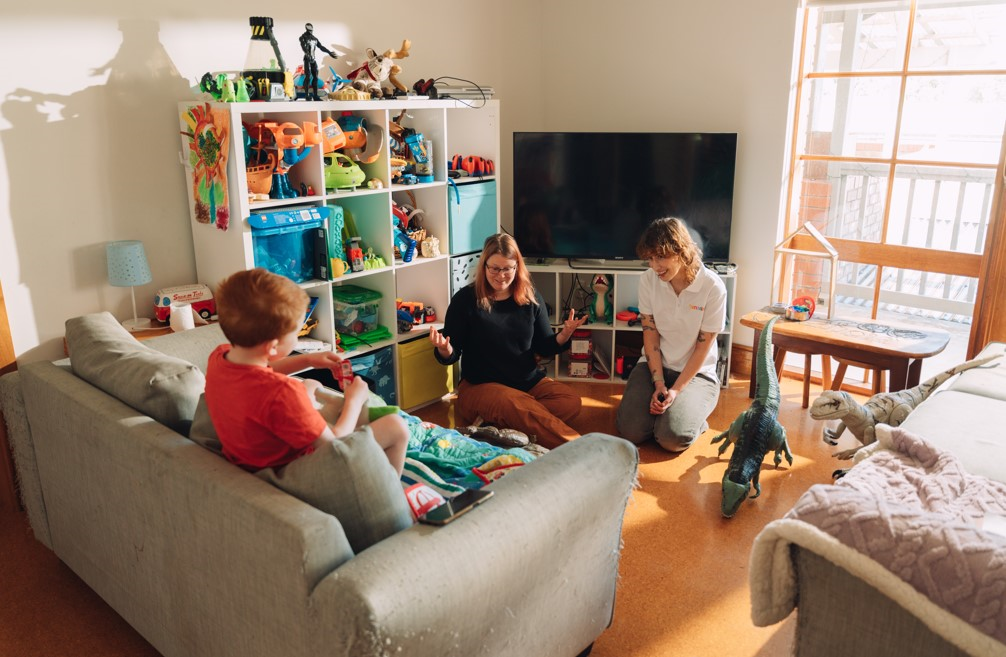The Benevolent Society has introduced a new early intervention program to support children with a disability and their families in New South Wales and South Australia.
The In Sync program recognises that a child’s greatest asset is their relationship with their parents/caregivers. Practitioners help parents/caregivers learn how to implement useful strategies and techniques that families can integrate into their daily routines. Sessions are play-based, leveraging the parent / caregiver and child relationship to target the specific needs and goals of the child to help build vocabulary, manage behaviour or sensory challenges, recognise cues and support them with development milestones.
Benevolent disability, ageing, carers & business development, executive director Jeremy Halcrow said therapies to assist children who had missed key milestones were more effective when supported by a parent’s relationship with their child.
“To test the efficacy of this approach more broadly we took a research and development approach to pioneering a new intervention. In Sync aims to strengthen parents’ responsiveness to their child’s unique cues, so they can interact with them in ways that support their development,” he said.
The program is tailored to children aged 0-7 years who have a NDIS Plan under Developmental Delay. If individuals don’t have this funding, they can contact Benevolent for support. Sessions are provided for three to six months however if further access to support is required, the society will work with the parents/caregivers to ensure support is available.
Families supported through the program have reported significant improvements in goals for their children after three to six months of therapy.
The program combines the clinical research work of Benevolent consultant occupational therapist Dr Jacqui Barfoot and psychologist Dr John Callanan, which identifies that children learn and grow best within their natural environments and are more receptive to learning through play-based activities with their parents/caregivers.
“Strengthening these parent/child interactions helps create a strong platform for development that often makes it easier to try other things that will support a child’s development,” Barfoot said.
Occupational therapist and Benevolent project implementation lead Eden Diggle said: “We have found this model not only helps children learn and reach their developmental goals but also builds the capacity of the family to continue to support their child in real-life settings as they grow.”
The In Sync program is available in South Australia (Melrose Park, Elizabeth Vale and Port Pirie) and NSW (Tamworth and the Illawarra region) with the potential to expand in other locations.
Contact The Benevolent Society on 1800 236 762 or visit benevolent.org.au

